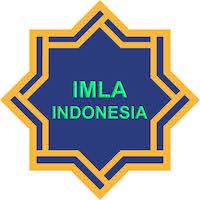Transforming Arabic Language Learning Through Kumaravadiveli's Epistemology
DOI:
https://doi.org/10.18592/jams.v11i2.14307Keywords:
Transforming, Kumaravadivelu, Epistemology\, Arabic Learning, Pacamethod, Beyond MethodAbstract
This study aims to explain Kumaravadivelu's epistemology in transforming Arabic language learning through postmethod and beyond-method approaches. The research method used is a literature study, which involves analyzing Kumaravadivelu's works as well as other related research in this field. The analysis shows that with Kumaravadivelu's epistemology of postmethod (including postmethod conditions, postmethod pedagogy and postmethod praxis) and beyond method (including macrostrategies and microstrategies), Arabic language learning can be transformed to be more responsive and adaptive to students' needs and local contexts. Postmethod encourages teachers to be reflective and innovative practitioners, while the Beyond Method framework provides macrostrategy guidelines that allow for flexible and contextualized application. This transformation not only enhances the effectiveness of Arabic language teaching but also empowers students as independent, critical and free learners. This transformation marks a paradigmatic shift from a static approach to Arabic language teaching towards a more contextualized, practical and possibility-oriented approach.References
Annamend. (2021). What is “postmethod” language teaching and why has it been so influential? Annamend.Com. https://annamend-com.translate.goog/2021/09/08/what-is-postmethod-language-teaching-and-why-has-it-been-so-influential/?_x_tr_sl=en&_x_tr_tl=id&_x_tr_hl=id&_x_tr_pto=tc
Birjandi, P., & Hashamdar, M. (2014). Micro-strategies of Post-method Language Teaching Developed for Iranian EFL Context. Theory and Practice in Language Studies.
Farisi, S. Al. (2022). Setop Jadi Guru yang Mabuk Metode. Mediaindonesia.Com. https://mediaindonesia.com/opini/513369/setop-jadi-guru-yang-mabuk-metode
Hamzah. (2022). TELAAH METODE PEMBELAJARAN BAHASA ASING DALAM DIMENSI HISTORIS: DARI ERA METODE SAMPAI ERA POSTMETHOD. International Conference on Education, Islamic Studies, and Local Wisdom (ICEIL).
Hensel, R. M. (2024). The mind is like a sponge, soaking up endless drops of knowledge. Spongeelt-Org. https://spongeelt-org.translate.goog/2021/09/22/review-understanding-language-teaching-from-method-to-postmethod-b-kumaravadivelu/?_x_tr_sl=en&_x_tr_tl=id&_x_tr_hl=id&_x_tr_pto=tc
Kumaravadivelu, B. (2001). Toward a Postmethod Pedagogy. TESOLQUARTERLY, 35(4).
Kumaravadivelu, B. (2003). Beyond methods : Macrostrategies For Language Teaching.
Kumaravadivelu, B. (2006). UNDERSTANDING LANGUAGE TEACHING From Method to Postmethod. LAWRENCE ERLBAUM ASSOCIATES, PUBLISHERS.
Nasarudin. (2023). Pendekatan Berdiferensiasi Pembelajaran Bahasa Arab. In Transformasi Pembelajaran Bahasa Arab. Gita Lentera.
Nasarudin. (2024). PENGANTAR EPISTEMOLOGIS SOSIOLINGUISTIK. In Pengantar Sosiolinguistik. Gita Lentera.
Nasarudin, Nurjannah, Alfian, M. I., & Izomi, M. S. (2023). Urgensi Konsep Diferensiasi Carol Ann Tomlinson Dalam Pembelajaran Bahasa Arab. PINBA VII IMLA.
Sundari, Y., & Rachminingsih, I. (2015). Model Pembelajaran Post-Method Pedagogy Mahasiswa Perguruan Tinggi Seni Pada Mata Kuliah Bahasa Inggris. Panggung.
Wahab, M. A. (2015). PEMBELAJARAN BAHASA ARAB DI ERA POSMETODE. Arabiyat. https://doi.org/10.15408/a.v2i1.1519
Downloads
Published
Issue
Section
License
Copyright (c) 2024 NASARUDIN NASARUDIN, Fitriani, Muhammmad Zakki Masykur, Ahadiah Agustina, Novi Yanti Sandra Dewi, Syahrul Izomi

This work is licensed under a Creative Commons Attribution 4.0 International License.
Authors who publish with this journal agree to the following terms:
- Authors retain copyright and grant the journal right of first publication with the work simultaneously licensed under a Creative Commons Attribution License that allows others to share the work with an acknowledgement of the work's authorship and initial publication in this journal.
- Authors are able to enter into separate, additional contractual arrangements for the non-exclusive distribution of the journal's published version of the work (e.g., post it to an institutional repository or publish it in a book), with an acknowledgement of its initial publication in this journal.
- Authors are permitted and encouraged to post their work online (e.g., in institutional repositories or on their website) after the submission process, as it can lead to productive exchanges, as well as earlier and greater citation of published work.






